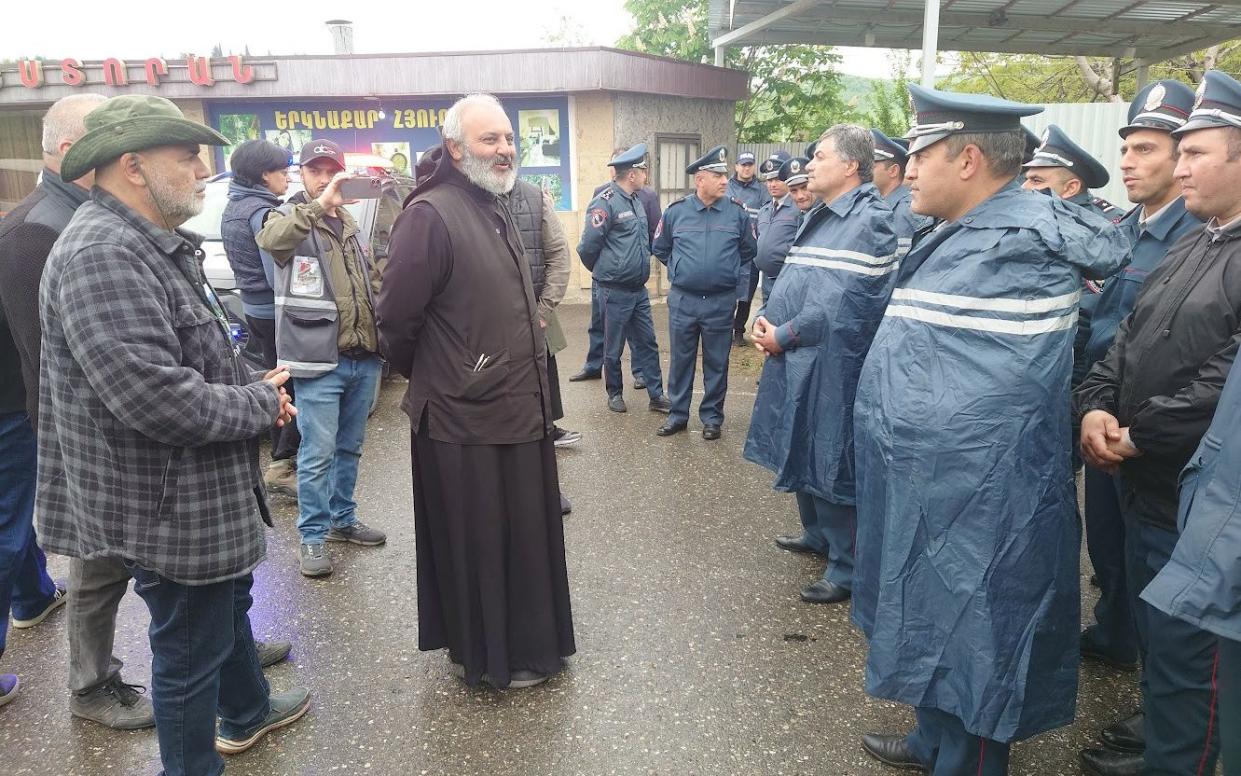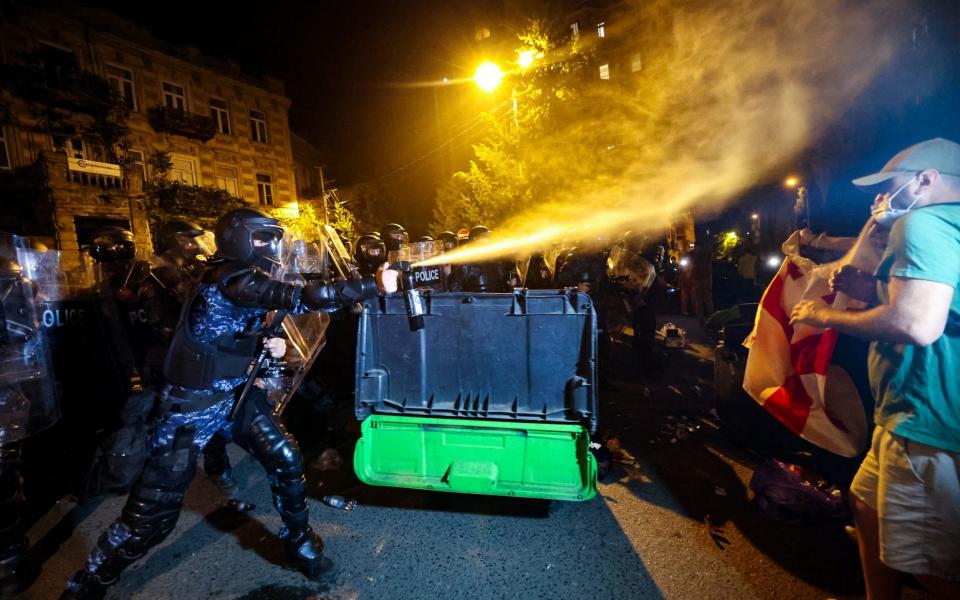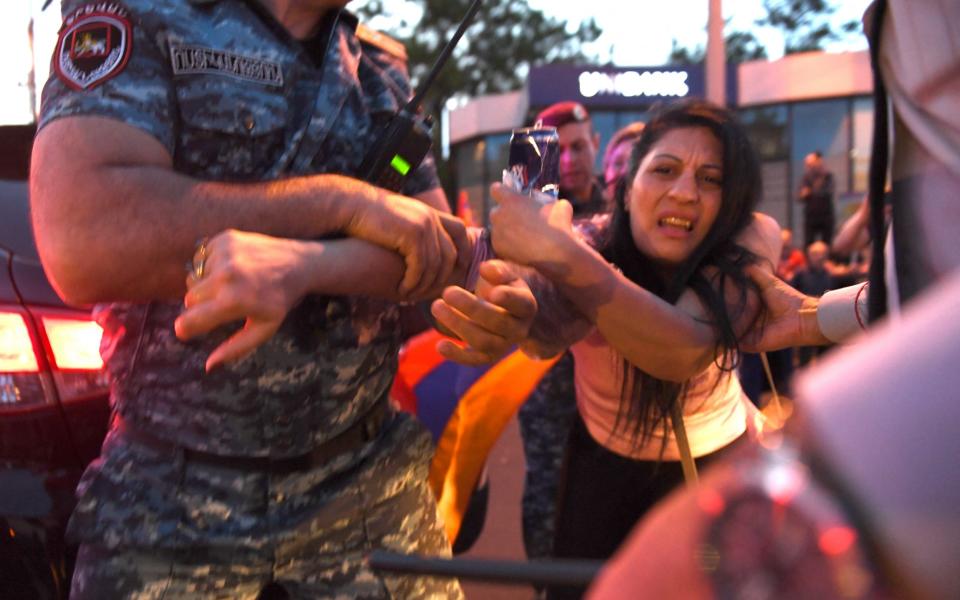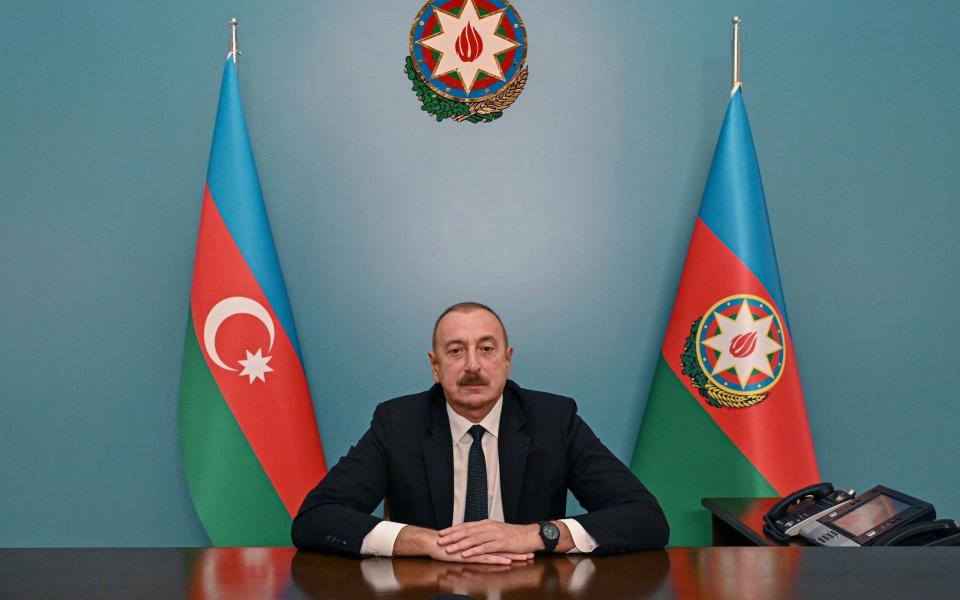Armenia a ‘big loser of war in Ukraine’ thanks to Kremlin-backed Azerbaijan

Vladimir Shahinyan is a proud Armenian but he says he has been betrayed.
The 37 year-old is one of the losers in a deal encouraged by the US and the EU for Armenia to hand control of four border villages to arch-enemy Azerbaijan.
Nikol Pashinyan, Armenia’s prime minister, sees the deal as a chance for peace but Mr Shahinyan sees it as a sell-out that has created a personal crisis. Under the redrawn border, his car repair garage will be moved inside Azerbaijan and out of his reach.
“I don’t know what I will do when I lose the workshop. I have two children that I need to provide for. I feel psychologically pressured,” he said as he waited for permission to drive through a police roadblock in this mountainous corner of north-east Armenia.
Russia’s war in Ukraine overshadows flashpoints between western democracy and Kremlin-inspired autocracy in the South Caucasus but analysts say these conflicts are critically important for building influence in the strategically important region that connects Asia and Europe.

In Georgia, police wearing balaclavas have in recent weeks attacked crowds demonstrating against a Kremlin-inspired law that undermines western-backed non-governmental organisations and here, in this lush border zone a three-hour drive from Yerevan, Armenian officials are conceding land to Kremlin-backed Azerbaijan after several military defeats since 2020.
Armenia’s relations with the Kremlin have soured over Russia’s failure to protect it despite security guarantees amid its war on Ukraine.
In September, Azerbaijan completed its capture of the disputed region of Nagorno-Karabakh after Russian peacekeepers were ordered to stand aside moments before an assault, which some believe was approved by the Kremlin.
Ilham Aliyev, Azerbaijan’s president, was seen laughing and joking with Vladimir Putin in the Kremlin days after Russia withdrew 2,000 peacekeeping soldiers from Nagorno-Karabakh because “they were no longer needed”.
Tigran Grigoryan, head of the regional centre for democracy and security think tank in Yerevan, said that Azerbaijan’s military superiority, often financed by oil and gas sales to Europe, the Kremlin’s preoccupation with its war in Ukraine and Azerbaijan’s importance for Russian trade routes to Iran encouraged Mr Aliyev to complete the capture of Nagorno-Karabakh despite a peace deal imposed by Russia after a 2020 war.
“Azerbaijan is one of the big winners of the war in Ukraine and, aside from Ukraine, Armenia is one of the biggest losers,” he said.
The demarcation process that Mr Pashinyan is now trying to sell to Armenians is supposed to fix the border, twisted by conflict and ethnic cleansing by both sides since the late 1980s, but most Armenians said they felt humiliated and don’t believe that Azerbaijan will keep to its side of the bargain to give up Armenian territory that it has captured.
Protestors arrested
In the past week, police in Yerevan have arrested dozens of people protesting against the land handover. Levon, an off-duty taxi driver smoking a cigarette on a street in the Armenian capital, rolled his eyes when asked about the deal and explained the deep-rooted distrust.
“You give them this much, and then they take this much,” he said, first holding his thumb and finger close together and then moving his hands apart.

And this remote border zone is currently the focus of the Armenian fury.
Here, Mr Aliyev claims sovereignty over four villages, including part of the village of Kirants where Mr Shahinyan, the mechanic, lives. The village will be split after the border is shifted by more than a mile.
“My house will be right next to the border. I don’t know how my children will be able to live there as they know their uncle was killed by Azeris in the war in 2020,” said Mr Shahinyan.
The villages were part of Azerbaijan during the Soviet era, and have Azerbaijani names as well as Armenian names, but have been controlled by Armenia since the 1990s. Most were abandoned although several people living in Kirants told The Telegraph that they would lose their house and land with the border demarcation.
On Friday, a few dozen police manned a blockade of the road leading to the villages because the Armenian army was demining surrounding fields ahead of the handover.
Bagrat Galstanyan, a charismatic local archbishop, has been campaigning against the border transfer and had travelled to see the roadblock.
“This is all about geopolitics. Russia is playing dirty games,” he said.
The sight of the tall archbishop in his black cassock clearly buoyed distressed villagers crossing through the police blockade but most still declined to give their names. They all said that they were angry and frightened.
“They have just handed over everything, the next thing to happen is ethnic cleansing,” said Artsrun, after gesticulating at the police and then returning to his battered car where three small children clambered impatiently over the backseats.

Talk of ethnic cleansing in Armenia is poignant. Millions of Armenians were forced out of Turkey in 1915, trekking to modern-day Armenia, Lebanon and Syria for sanctuary. Many died on the journey, which Armenians describe as the first genocide of the 20th century.
Nagorno-Karabakh
In September, after Azerbaijan completed its capture of Nagorno-Karabakh, 100,000 ethnic Armenians also fled from Stepanakert, their regional capital, an exodus that effectively ethnically cleansed the region.
Mr Aliyev, who has been in power since 2003 and won an election with 93 per cent of the vote this year after imprisoning independent journalists and opposition activists, has gloried in his military victories which include capturing sovereign Armenian territory overlooking a popular spa town in 2022.
After capturing Stepanakert, he was photographed wearing a military uniform and standing on the flag of Armenian rebels.
Although Armenia has signed weapon supply deals with France and India over the past few months and has added a defence attache to its beefed-up embassy in Britain, Mr Grigoryan, the analyst, said Azerbaijan was militarily dominant and could dictate affairs.
Back on the remote road in northeast Armenia, this dominance was playing havoc with the Armenian villagers who are now facing the tumult of being uprooted.
One harassed middle-aged villager said that she didn’t know now if she would be able to return to the village and in a telephone interview from Kirants, 56-year-old Khanum Tamrazyan said that she had been told that she would have to give up her home of 25 years.
“This is my land and my house. We have the documents proving that it belongs to me. There’s no way I’m going to leave it,” she said. “Our fate is very unclear.”

 Yahoo News
Yahoo News 
